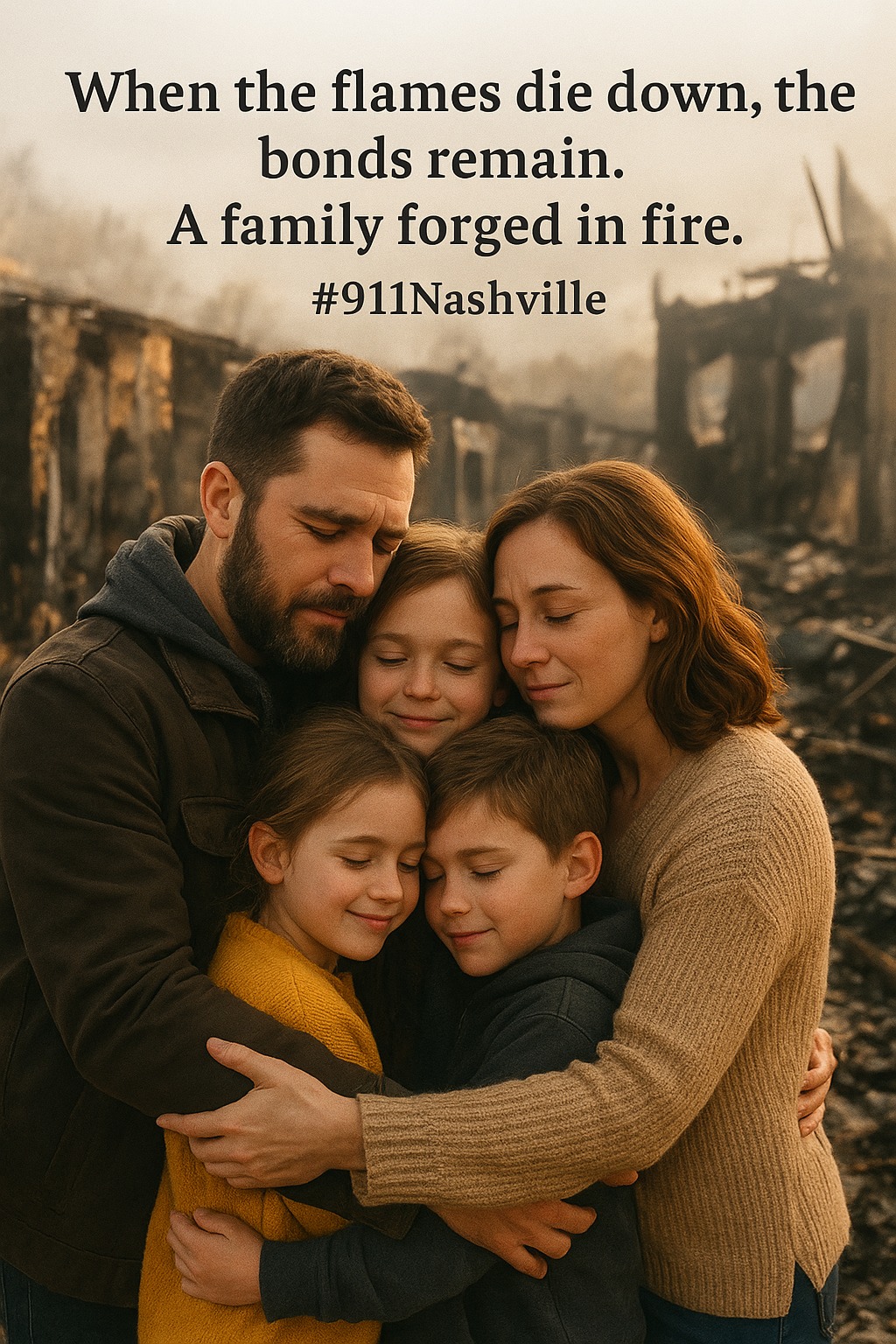
Beyond the Smoke and Ashes
Life has a way of testing us. Sometimes, those tests come in the form of heartbreak, loss, or even fire—literal or metaphorical. But here’s the truth: when the flames die down, what remains is not just rubble, but relationships, resilience, and bonds that no fire can destroy. In this article, we’ll explore the meaning behind being forged in fire—how challenges can strengthen family ties, why unity is our greatest survival tool, and how tragedy often gives birth to unshakable love.
The Meaning Behind “Forged in Fire”
When we say a family is “forged in fire,” we’re not just painting a poetic picture. Fire transforms. It burns away the unnecessary, leaving behind only what is strong enough to survive. Similarly, life’s trials strip away illusions and distractions, allowing us to see the true core of what matters—our people.
Why Adversity Strengthens Families
Shared Pain Creates Shared Strength
When families endure hardship together, they form bonds that outsiders can’t fully understand. The pain becomes a shared language, one that only those inside the circle can speak.
Unity in the Face of Chaos
Adversity forces choices: do we fall apart, or do we stand closer together? Families that choose unity over division find themselves stronger than before.
The Fire as a Symbol of Life’s Trials
Literal Fires: Surviving Disaster
Families who survive real house fires, natural disasters, or emergencies often emerge with a perspective that material things can be replaced—but people cannot.
Metaphorical Fires: Emotional and Personal Battles
Sometimes, the fire is grief. Sometimes, it’s financial hardship. Other times, it’s betrayal or loss. Regardless of the form, the flames test the strength of family bonds.
Stories of Families Forged in Fire
First Responders’ Families
Firefighters, EMTs, and police officers live with fire—literally and figuratively—every day. Their families are built on sacrifice, late nights, and constant worry, yet their bonds remain among the strongest.
Military Families
Military spouses and children are familiar with uncertainty and separation. They are a testament to resilience, forged by the fire of distance and danger.
Everyday Heroes
Even ordinary families, facing extraordinary circumstances like illness or job loss, often discover a strength they never knew existed.
How to Build Stronger Bonds After Crisis
1. Prioritize Communication
Silence fuels distance. Honest conversations create healing.
2. Create New Rituals
Shared routines—whether it’s family dinners or weekly game nights—act like glue after trauma.
3. Lean on Community
Sometimes, family isn’t just blood. Friends, neighbors, and support groups can become lifelines.
4. Allow Space for Healing
Not everyone processes pain the same way. Respecting each other’s journey is key.
The Psychology of Resilience
Psychologists often describe resilience as “bouncing forward” rather than “bouncing back.” Families don’t return to who they were before the fire; they evolve into something new, often stronger.
Faith, Hope, and the Fire Within
For many families, faith—whether religious or spiritual—becomes the anchor in the storm. Hope is the spark that keeps the fire inside burning even when external flames threaten to consume everything.
Why #911Nashville Matters
The phrase “#911Nashville” echoes both emergency response and the resilience of communities who’ve faced disasters. It’s a reminder that while buildings may fall and flames may rage, the human spirit—and the family bond—cannot be destroyed.
Life Lessons from Fire and Family
-
People are irreplaceable; things are not.
-
Love often shines brightest in darkness.
-
Hardship doesn’t break families; it forges them.
The Beauty of Rebuilding
Every family who rises from ashes becomes a living testament to strength. Rebuilding is not just about restoring what was lost—it’s about creating something new, stronger, and more meaningful.
Practical Steps to Stay United in Crisis
-
Check in on each other daily.
-
Express gratitude, even for small things.
-
Share responsibilities instead of letting one person carry the weight.
-
Seek professional help when needed—there’s strength in asking.
Metaphor of the Phoenix
Like the mythical phoenix rising from ashes, families forged in fire are reborn stronger and brighter. The flames don’t define them—the rebirth does.
The Role of Gratitude in Healing
Gratitude acts like water after fire. It cools the heat, nurtures growth, and shifts focus from loss to love.

Conclusion: The Bonds That Outlast Flames
Fires end. Flames fade. Smoke clears. But the love, unity, and bonds built in the midst of chaos remain unshakable. A family forged in fire isn’t just about survival—it’s about transformation. And when you look back, you realize the fire didn’t just test your family, it defined it.
FAQs
Q1: What does “forged in fire” really mean for families?
It means surviving hardships together and coming out stronger, just like metal becomes tougher after being tempered by fire.
Q2: Can a family really grow closer after tragedy?
Absolutely. Shared struggles often create deeper empathy, love, and reliance on one another.
Q3: What role does community play in resilience?
Communities often become extended families, providing resources, comfort, and emotional support during tough times.
Q4: How can families keep bonds strong after a crisis?
Through open communication, shared routines, gratitude, and mutual respect for individual healing journeys.
Q5: Why is the metaphor of fire so powerful for describing family resilience?
Because fire destroys, but it also transforms. Families who survive it aren’t weakened—they’re reshaped into something stronger.